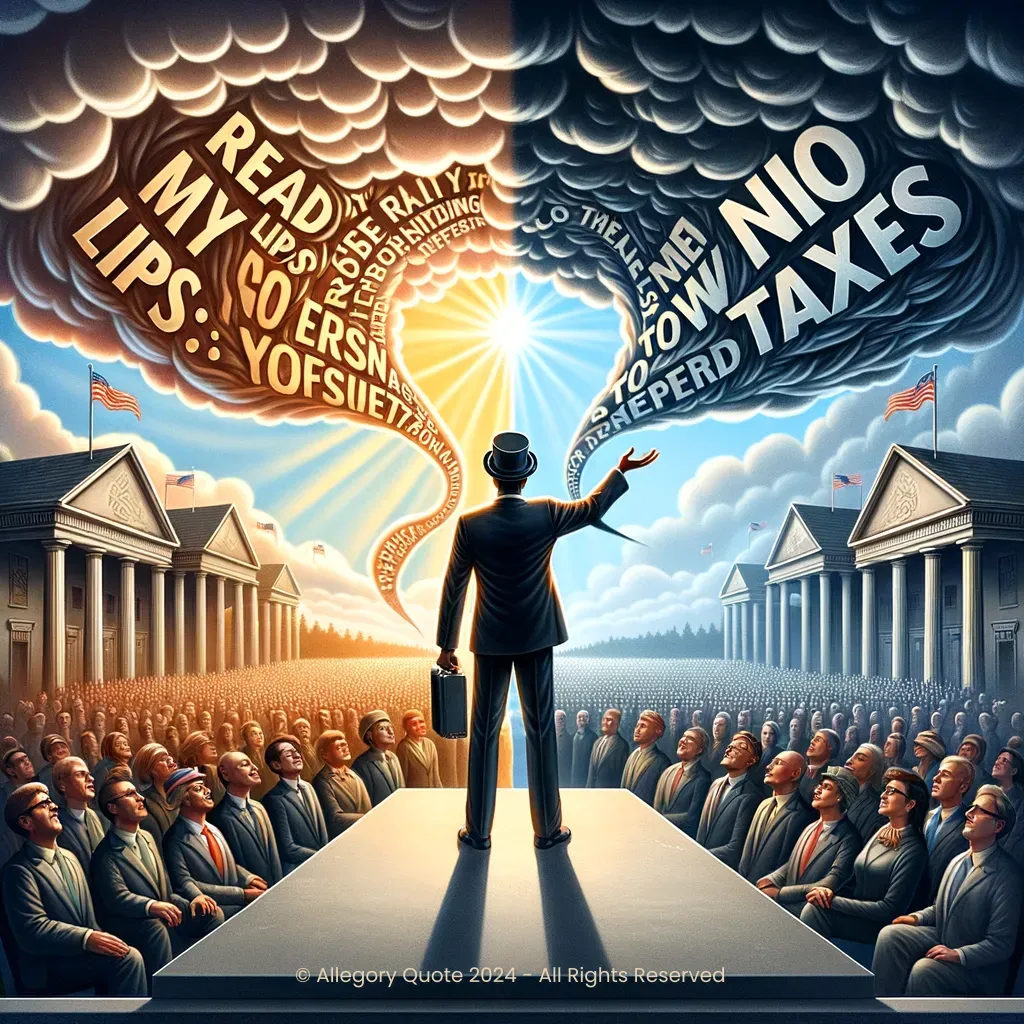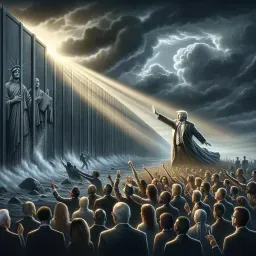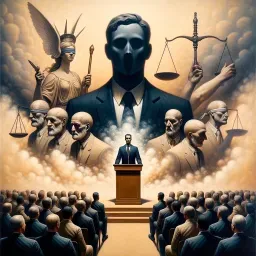Read my lips: no new taxes

0
0
0
0
- Meaning
- This phrase was a strong, declarative statement aiming to reassure voters of Bush's commitment to not raising taxes. The intent was clear-cut and designed to build trust and elicit support from tax-averse constituents by making a definitive promise about fiscal policy. However, it also underscores the power and sometimes the burden of political promises, as failure to adhere to such promises can lead to significant fallout.
- Allegory
- The elements in the image symbolize the dynamics of political promises. The bright sunshine and lively crowd signify optimism and belief in the leader’s words. In contrast, the dark storm clouds suggest the potential turbulence and distrust that may follow unmet promises. The swirling words emphasize the prominence and weight of the specific promise made, "no new taxes," highlighting how such declarations can significantly influence both public sentiment and political trajectory.
- Applicability
- The statement highlights the importance of keeping promises, especially in leadership roles. In our personal lives, this translates to the need for integrity and accountability. Whether in personal relationships, business, or community engagements, consistently fulfilling one's commitments builds trust and credibility.
- Impact
- The impact of this phrase was substantial in the political realm. Initially, it helped Bush win the presidency, but it later became a point of criticism when he ultimately approved tax increases. The phrase is often cited in discussions about political promises and accountability. It also played a prominent role in shaping public perception of Bush's presidency.
- Historical Context
- The phrase was made in 1988 during the Republican National Convention, a critical event in the U.S. presidential race. At the time, the political climate was heavily influenced by economic concerns, with tax policies being a particularly contentious issue.
- Criticisms
- The main criticism of this phrase arose when George H.W. Bush did approve tax increases during his presidency, leading to a breach of his promise. This decision sparked significant controversy and was seen by many as a betrayal of his campaign pledge. It fueled debates about the feasibility of political promises and the complexities involved in governance.
- Variations
- Variations of this phrase have been humorously or critically adapted in popular culture, often used to underscore unfulfilled promises or as a parody in political satire.
-

I did not have sexual relations with that woman.
-

Mr. Gorbachev, tear down this wall!
-

Make America Great Again.
-

We must adjust to changing times and still hold to unchanging principles.
-

I know the human being and fish can coexist peacefully.
-

Our long national nightmare is over.
-

You reap what you sow.
-

The buck stops here.
-

Yes we can.
-

I am not a crook.
No Comments